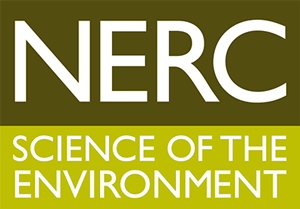Industrial minerals
Industrial minerals are vital to a modern economy: they underpin manufacturing industry, construction and agriculture and have important environmental applications. The mineral planning factsheets provide key information on minerals that are of economic importance to Britain, including a wide range of industrial minerals.
UK minerals production data shows the importance of industrial minerals.
Brick clay

Bricks are an important building material and are one of the most visible components of the built environment. The Office of the Deputy Prime Minister (ODPM; now the Department for Levelling Up, Housing & Communities) commissioned BGS to carry out research into planning issues related to the supply of clay raw materials to the brick industry in mainland Britain. The report, Brick clay: issues for planning executive summary, details recommendations for a number of changes to the planning process for the supply of brick clay, which aimed to provide the brick industry with a sustainable supply of raw materials at the least cost to the environment. Detailed findings and recommendations are set out in the technical report, Brick clay: issues for planning, which is aimed at specialists in the brick industry and planning community.
Fireclay
BGS was commissioned by the British Ceramic Confederation (BCC) and the Confederation of UK Coal Producers (CoalPro) to produce a brochure on Fireclays in ceramic production.
For further information please contact the British Ceramic Confederation (bcc@ceramfed.co.uk) or contact the Confederation of UK Coal Producers (admin@coalpro.co.uk).
Ball clay

Ball clays are a vital raw material in the manufacture of high-quality ceramics. The restricted distribution of ball clay resources in the UK has led to a number of difficult planning issues. This is the case in the Wareham Basin of east Dorset, where working of the internationally important deposits of ball clay is severely constrained by extensive landscape and nature conservation designations.
The ODPM commissioned BGS to undertake a study of the inter-relationships of minerals, land use and environmental resources of the Wareham Basin. The research included detailed geological mapping, drilling, sampling, analytical work and the collation of data on the environmental constraints. The reports, maps and databases are intended to deliver information that will assist sustainable resource management, planning and policy development in the Wareham Basin.
BGS produced thematic maps on a scale of 1:30 000 to supplement this research.
- Maps 1 and 2: distribution of clay and sand resources in the Wareham Basin
- Maps 3 and 4: mineral planning permissions; mineral workings; preferred areas; ball clay area of search and ball clay consultation area on map 1 and 2 bases
- Maps 5 and 6: international nature conservation designations on Maps 1 and 2 bases
- Maps 7 and 8: national landscape and nature conservation designations (SSSIs; NNRs; AONBs; Heritage Coast; scheduled monuments) on Map 1 and 2 bases
- Maps 9 and 10: other land-use factors (MOD land; National Trust; groundwater; agricultural; conservation; pipelines; commercial forestry) on Map 1 and 2 bases
Sustainable development issues for mineral extraction in the Wareham Basin of east Dorset shows the results of the study.
BGS industrial mineral resource assessments

The BGS industrial minerals consultancy service is founded on the extensive UK and international experience of its staff and the well-equipped laboratory facilities.
The services offered include:
- consultation: impartial advice on resource assessment, laboratory test work, mineral processing & commodity evaluation by BGS industrial minerals experts
- resource assessment: reconnaissance surveying of resources, field sampling, GIS-based resource maps, reports and investment promotion brochures
- technical evaluation: characterisation, mineral processing and evaluation test work to determine the end-use suitability of industrial mineral commodities
- industrial minerals markets: the value of the technical evaluation can be enhanced by advice on potential markets, market survey research and investment promotion activities
- industrial minerals training and workshops: training modules and workshops cover the importance of industrial minerals, markets, concepts, commodities, exploration, characterisation, mineral processing and end-use testing
For further information please contact Clive Mitchell, BGS Industrial Minerals Specialist.




Follow us

